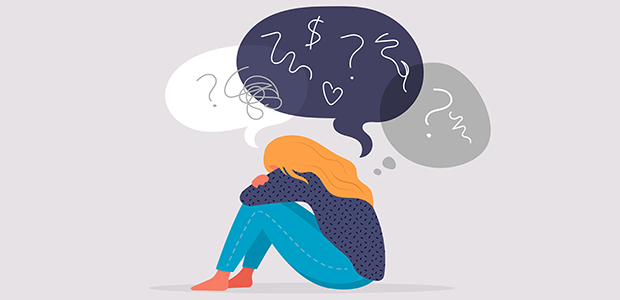
Unraveling the misdiagnosis: Overlapping symptoms of ADHD and dissociation
Attention Deficit Hyperactivity Disorder (ADHD) and Dissociation are two complex conditions that can significantly impact an individual's daily life. While they have distinct origins and characteristics, there are remarkable similarities between the symptoms of these disorders, leading to frequent misdiagnoses and confusion.
This article aims to shed light on the shared symptoms between ADHD and Dissociation, emphasising how Dissociation is often mistaken for ADHD, particularly in terms of lack of focus. Furthermore, we will explore the relationship between trauma, dissociation, and the release of opiates, as well as the potential benefits of opiate blockers in reducing dissociation symptoms.
The Overlapping Symptoms
- Lack of Focus: One of the most apparent similarities between ADHD and Dissociation is the struggle to maintain focus and attention. In both conditions, individuals often find it challenging to concentrate on tasks, leading to difficulties in school, work, and personal relationships.
- Daydreaming and Mind Wandering: Both ADHD and Dissociation can manifest as excessive daydreaming and frequent episodes of mind wandering. This can result in a loss of time, forgetfulness, and a sense of being disconnected from the present moment.
- Forgetfulness and Poor Memory: Memory issues are common in both conditions. Individuals with ADHD may have difficulty remembering details or following instructions, while those experiencing dissociation may struggle to recall events that occurred during dissociative episodes.
- Impulsivity: Impulsive behaviour is a characteristic of both ADHD and Dissociation. Individuals may act without thinking, make hasty decisions, or engage in risky behaviours, often leading to negative consequences.
Trauma, Dissociation, and Opiates
Traumatic experiences can be significant contributors to both Dissociation and ADHD-like symptoms. When a person is subjected to severe emotional or physical trauma, the body responds by releasing endogenous opiates, such as endorphins, to mitigate pain and distress. These opiate neurotransmitters can induce a dissociative state as a protective mechanism, numbing the individual from the overwhelming emotions associated with the trauma.
Opiate Blockers and Dissociation
Considering the link between trauma-induced dissociation and the body's release of opiates, researchers have explored the use of opiate blockers as potential treatment options for dissociative symptoms. Opiate blockers, also known as opioid receptor antagonists, work by binding to the opiate receptors in the brain, blocking the effects of endogenous opiates.
By administering opiate blockers, such as naltrexone or naloxone, individuals experiencing dissociation may be able to reduce the intensity and frequency of dissociative episodes. However, it's essential to note that this approach is still being studied and requires further research to determine its efficacy and safety.
Differentiating Between ADHD and Dissociation
Given the overlapping symptoms, it's crucial to differentiate between ADHD and Dissociation to ensure accurate diagnoses and appropriate treatment strategies. Mental health professionals play a vital role in conducting comprehensive assessments, considering an individual's medical history, trauma experiences, and the presence of other psychological conditions.
Therapeutic interventions, such as psychoeducation, cognitive-behavioural therapy (CBT), and medication management, are tailored to the specific needs of each condition. In the case of dissociation related to trauma, trauma-focused therapies like Eye Movement Desensitisation and Reprocessing (EMDR) can be particularly effective.
Understanding the similarities and differences between Attention Deficit Disorder and Dissociation is crucial for accurate diagnoses and effective treatment plans. While they share common symptoms, such as lack of focus, it is essential to consider trauma and the release of opiates in dissociation cases.
There are multiple treatment modalities and medications for treating either ADHD or Dissociation but Mindfulness-based psychotherapy and coaching as well as EMDR (Eye-Movement-Desensitisation Reprocessing) that I offer in my private practice are some of the most effective and long-term treatment modalities for symptoms related to either diagnosis. Mindfulness-Based psychotherapy and coaching is particularly effective in treating challenges with focusing.

